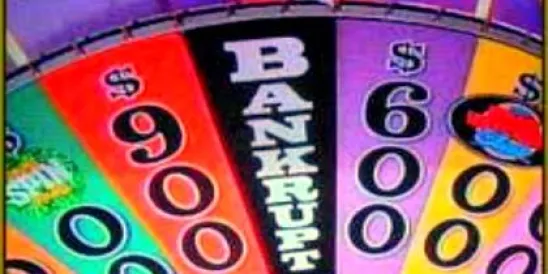In Stern v. Marshall, 564 U.S. ____ (June 23, 2011), the U.S. Supreme Court, in a 5-4 decision, held that the bankruptcy court could not, as a constitutional matter, enter a final judgment on a counterclaim that did not arise under Title 11 or in a case under Title 11, even though 28 U.S.C. § 157(b)(2)(C) expressly permits it to do so. In a dispute concerning the estate of the late J. Howard Marshall II, Pierce Marshall filed a complaint in Vickie Lynn Marshall's bankruptcy case alleging that Vickie defamed him and that such defamation claim was not dischargeable. Vickie counterclaimed for tortious interference with a gift expected from her late husband J. Howard. The bankruptcy court granted Vickie summary judgment on Pierce's claim for defamation and awarded Vickie more than $400 million on her counterclaim against Pierce.
While the narrow holding of the case would not likely cause substantial disruption to typical bankruptcy litigation since state law counterclaims to a claim are not frequent, a fair reading of the plurality and concurring opinions points to a future extension of the Stern holding, removing from the bankruptcy court its right to enter final judgments in typical fraudulent transfer and preference avoidance litigation. Because of the sheer volume of such litigation, such extension of the Court's rationale could well have a major impact on the adjudication of these actions in both the bankruptcy and district courts by transferring most of the avoidance actions from the bankruptcy courts to the district courts.
The majority in Stern relied heavily upon Granfinanciera, S.A. v. Nordbert, 492 U.S. 33 (1989), which held that an action by a bankruptcy estate to recover money allegedly fraudulently transferred by the debtor was a "suit at common law" entitled to the right of trial by jury as provided by the Seventh Amendment. Although Granfinanciera was a fraudulent transfer case, its reasoning is equally applicable to a preference claim.
In England, long prior to the enactment of our first Judiciary Act, common law actions of trover and money had and received were resorted to for recovery of preferential payments by bankrupts. Id. at 43 (quoting Schoenthal v. Irving Trust Co., 287 U.S. 92, 94 (1932)).
With the Supreme Court now holding that fraudulent transfer and preference avoidance actions are "suits at common law" for Seventh Amendment purposes and that a bankruptcy judge may not enter a final judgment in suits at common law, even if such a case is denominated as a "core proceeding" under 28 U.S.C. § 157, a question arises: Does it not therefore follow that a bankruptcy judge may not enter a final judgment in a fraudulent transfer or preference avoidance action? If so, the landscape of bankruptcy litigation is likely to drastically change.
An additional issue relates to whether parties to avoidance actions have the power to consent to the jurisdiction of the bankruptcy courts. In analyzing the defamation claim, the majority opinion cites United States v. Olano, 507 U.S. 725, 731 (1993), which in turn quotes Yakus v. United States, 321 U.S. 414, 444 (1944), to the effect that "a statutory right may be forfeited . . . by the failure to make timely assertion of the right before a tribunal having jurisdiction to determine it." Stern, 564 U.S. at ___. But the key phrase is "before a tribunal having jurisdiction to determine it." Since the decision in Stern is that Article III of the Constitution deprives the bankruptcy court of jurisdiction to render a final judgment in a "suit at common law," even if denominated as a "core" matter, what will be the effect on the jurisdiction of a bankruptcy court where an avoidance action defendant does not timely object, or expressly consents, to jurisdiction? Will an appellate court nevertheless be compelled to reverse any judgment on appeal? Or, will the appellate court treat the bankruptcy court's decision as being, in effect, a "hear and report" recommendation? While the answers are not clear, the possibilities for gamesmanship and confusion are.
In any event, the immediate practical implication of Stern is likely to be a marked increase in the assertion by avoidance action defendants of objections to the jurisdiction of the bankruptcy court to enter a final judgment, notwithstanding the ostensible statutory authority to do so.
An early and almost immediate (July 11, 2011) response to Stern occurred in BearingPoint, Inc. (Bankr. S.D.N.Y.). The confirmed Chapter 11 plan in BearingPoint provided that certain claims against former officers and directors of the debtor could only be brought in the bankruptcy court or in the U.S. District Court for the Southern District of New York. The litigation trustee appointed under the plan sought relief from the plan provision on venue for suits against the former officers and directors so that a complaint could be filed in state court in the state where the debtor was previously located. The targets of the proposed litigation opposed the relief while at the same time suggesting that the bankruptcy court would be precluded from entering a final judgment in the contemplated litigation.
Bankruptcy Judge Gerber recognized that the limitation on venue for certain future litigation was included in the plan at his instance. However, exclusive venue in the Southern District of New York no longer made sense in view of the Stern decision, which called into question whether a party could even consent to the bankruptcy court entering final orders in a noncore proceeding. In order to avoid a prospective procedural morass, Judge Gerber modified the confirmed plan to permit the litigation trustee to pursue his claims against former directors and officers in state court.
The Supreme Court's holding in Stern adds a new element of uncertainty as to the court in which fraudulent transfer and preference avoidance suits will be litigated. The one certainty is that the bankruptcy courts will have to grapple with the implications of the Stern decision


 />i
/>i
